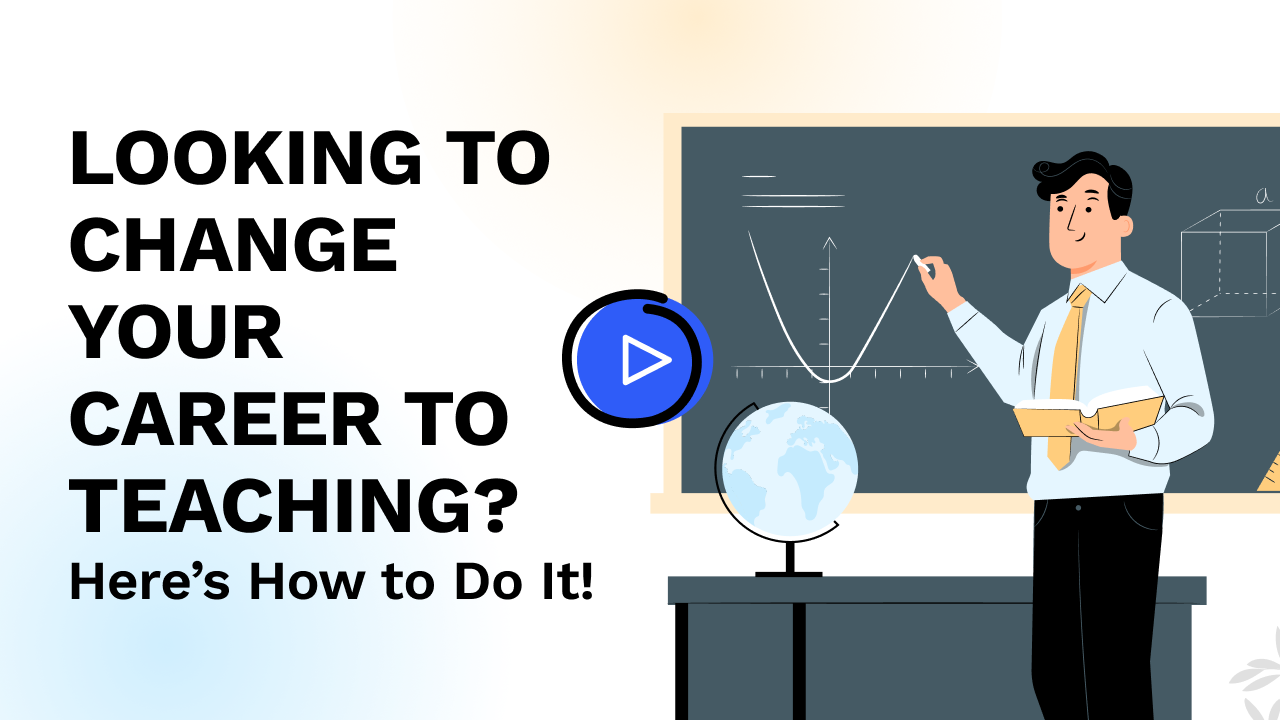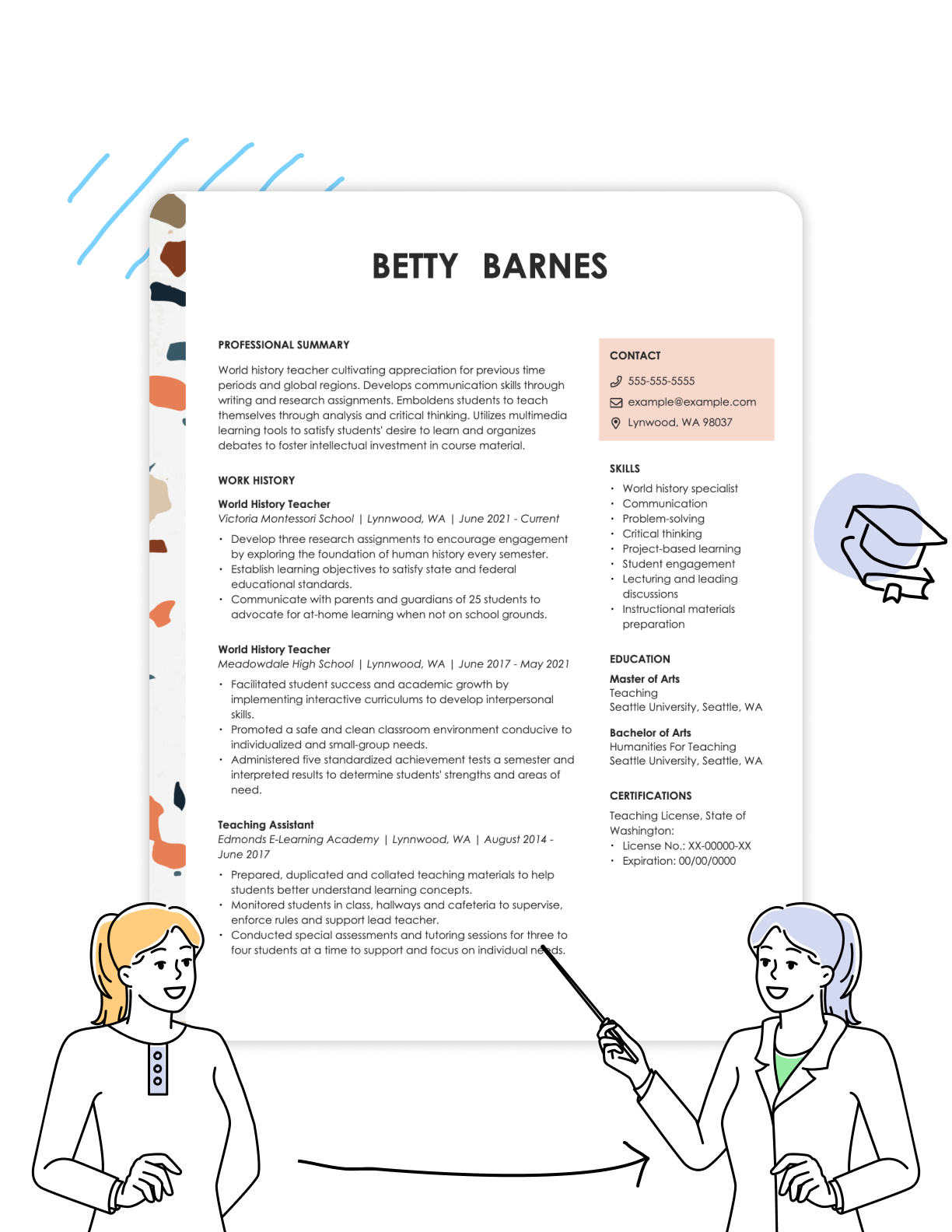The transition to teaching from another career isn’t the most common road to take, but it can lead to a fulfilling second career. As a business school graduate with a few years of work experience under my belt, I made the critical decision to become an educator. While my career has taken many turns, being a teacher remains my most fulfilling role.
Here are some tips to consider if you’re thinking of making a midlife career change into teaching.

What experience do you need to be a teacher?
In education, there is always a need for well-rounded professionals with varied work experiences and backgrounds. Your teaching resume must reflect that you have the proper certifications required by your state.
You can also relate your transferable skills through your resume (and your newfound desire to teach with a well-written, customized cover letter). Your past career — and the experiences from your past career — will serve you well once you’re leading a classroom.
Armed with a degree in finance, my initial opportunities to find a teaching job seemed limited. An Alternative Certification Program required that I take a test for a probationary certificate. I then had to teach in my degree field for one year before becoming eligible to test for additional subject certifications. This meant I earned my teaching certificate in Secondary Business, which seemed like a niche market for teaching jobs in my area.
If you find yourself in a similar position, here are some initial tips on how to change your career to teaching:
- Gain classroom hours: Substitute teach, tutor or work for a summer program. I gained hours substituting across multiple districts and teaching a reading program over the summer while finishing my certification.
- Tailor your resume to each job opening: When a teaching job requires a unique skill set, make sure yours stands out from the crowd by using keywords in your resume that match those in the job description. Many employers now use applicant tracking systems (ATS) when reviewing teaching resumes. These systems automatically scan resumes to find relevant keywords that align with their job requirements.
- Personalize cover letters for their readers: Familiarize yourself with details about the school, departments and staff as much as you can, and tell your story compellingly and directly to them. This allows you to demonstrate how your experience coincides with the mission and core values of the hiring team.
Once I was fully eligible to be a teacher, finding my first job came down to a little hustle and a lot of luck. Here’s what I did:
- Checked job boards across multiple districts and individual schools daily.
- Submitted customized resumes and cover letters online.
- Followed up directly with principals, department heads, and other teachers.
Ultimately, it worked. For my first teaching job, I was hired by the business academy department head as her replacement. She had just been promoted to an administrator role halfway through a semester. It was a unique circumstance, but by focusing on the details, I was able to make it pay off.
Pick a professionally designed resume template, download it, and land an interview today.
Can you become a teacher with a master's degree?
If you’re looking for a teaching job with a master’s degree, you will likely find yourself in good company. While it’s not always required, having a master’s degree helps increase your chances of finding a quality job, advancing in your career, and earning the trust and credibility of your peers and students.
A typical path for many teachers is to earn their master’s in education while working. You can pursue this degree either before you transition into teaching or after you’ve already secured a teaching job.

Is it difficult being a teacher?
As with any profession, teaching has its challenges. There’s the endless grading, standardized tests, administrative bureaucracy, lesson planning and demanding parents. But it’s the one job where you get to walk into your classroom, look your students in the eyes, and give them your best. Here are some other aspects of teaching to consider:
Teaching is a solid career that allows you to grow as an educator
The Bureau of Labor Statistics estimated there would be nearly 2 million job openings in education between 2014 and 2024. Unfortunately, those figures do account for replacing headcount based on attrition. This includes the more than 50 percent of teachers who leave the profession within their first five years.
For me, economic and then personal circumstances dictated an early departure from teaching. I often speculate that, had one or two external factors been different, I would likely still be teaching at my first school. But at the end of the day, a career change into teaching is not significantly different from other professions in which regular changes occur based upon numerous factors. However, it still offers a career foundation you can build upon year over year.
Teaching allows you to learn continuously
One of the best parts of teaching is that fundamentally, you are being paid to learn. Whether you teach the same math class every year for two decades or you take on a new prep every year, there are numerous opportunities to grow professionally and technically. You’re always forced to stay sharp on your material and find new and interesting ways to relate it to your students.
After earning my permanent certification at the end of my first year of teaching, I went on to study and test for certifications in secondary English and Social Studies Composite. I also added Business and STEM Academy subjects such as Principles of Marketing and Finance, Graphic Design and Digital Electronics through the Project Lead the Way (PLTW) curriculum. I even sponsored several clubs in which I had to learn the skills and requirements of the competitions to guide the students effectively.
You can make a positive impact every day
It might sound cliché, but that doesn’t mean it’s not real. Being a teacher truly allows you the opportunity to do something good for a student who needs that positivity every single day.
Thinking of changing careers to become an educator?
If you want to be a teacher and are ready to make the transition, follow your passion and make it happen. Every job has its hurdles, but there are numerous resources at your disposal to get you noticed and land a teaching job that will truly change your life.
Check out our AI Resume Builder and Cover Letter Generator to create your best application materials today, and start affecting change tomorrow.
Was this information about Non-Teacher To Teacher: How I Made A Career Change Into Teaching helpful? Let us know!
Conor is a Certified Professional Resume Writer (CPRW) and member of the Professional Association of Resume Writers & Career Coaches dedicated to helping job seekers excel in their careers.
More resources

What If No One Responds When You Try To Follow Up After a Job Interview?
If no one responds after you try to follow up after a job inte...

How to List Adaptability Skills on Your Resume (35+ Examples, Definition & Tips to Improve)
Our adaptability skills definition and guide will help you wri...

What if I Don't Have Professional References?
Access advice on what to do if you get to the reference check ...

Federal Resume: Examples, Templates and Tips
As a federal employee your resume must stand out to capture t...

Nursing Student Resume: Examples, Templates & Tips for 2025
As a nursing student you need a resume that showcases your cl...

Scholarship Resume: Examples, Template & How-to Guide
As a scholarship applicant you need a resume that highlights ...

